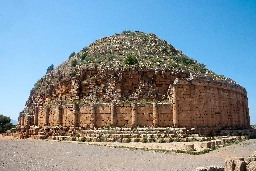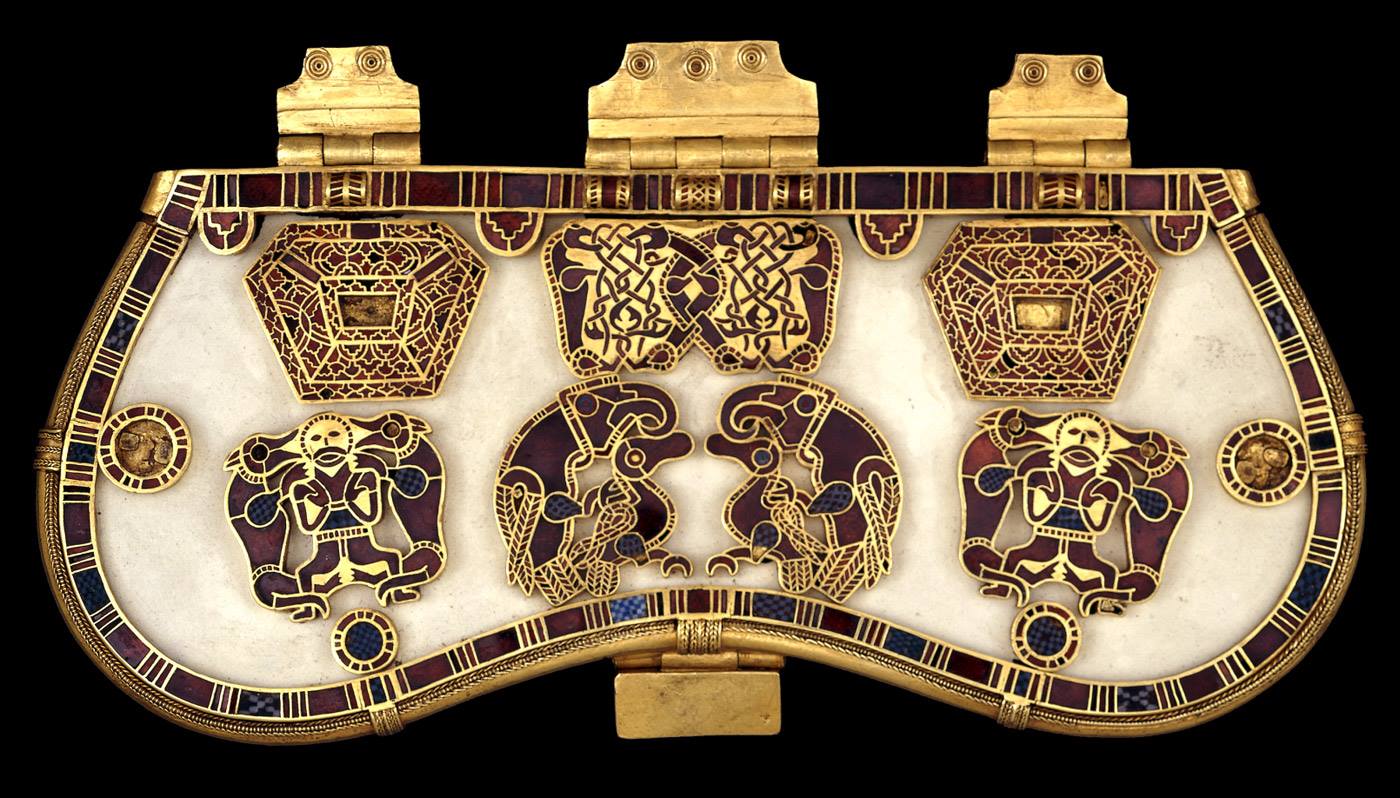DEFENDING OURSELVES INTO THREE CONTINENTS
Cripple. History Major. Irritable and in constant pain. Vaguely Left-Wing.
- 4.33K Posts
- 6.87K Comments
Explanation: One of the key scientists in the construction of early codebreaking computers in WW2 was Alan Turing (yes, of Turing Test fame), a gay man. While it was not immediately after WW2, in the 1950s, he inadvertently admitted to a cop that he was homosexual when being interviewed about a burglary at his house (cops, even on the occasions they are useful, are NOT your friends). His key work in defeating the literal fucking Nazis was disregarded in favor of chemically castrating him after he pled guilty to the charge.
It is suspected that this was a major cause of his subsequent suspected suicide by biting into a cyanide-laced apple (though some still hold that the apple incident was an accident).
Explanation: Mostly just memeing - while Romans could be immensely prickly about why they chose to go to war, they placed a high value on ius bellum - ‘justified war’ - wherein some form of legal and moral reasoning was employed before choosing to go to war. They were often very meticulous in examining minutiae in search of offense to give themselves an excuse to go to war, mind you - but it was generally things that we would recognize as, if not justifying war, at least justifying offense.
At the same time, it must be recognized that when a Roman could not find an excuse for a war he wanted, he made one - provocation was perfectly legitimate, and the hypocrisy of it generally ignored. If the barbarians did not wish to cause offense, they should not have responded in such a predictable way!
Explanation: Mostly just memeing - while Romans could be immensely prickly about why they chose to go to war, they placed a high value on ius bellum - ‘justified war’ - wherein some form of legal and moral reasoning was employed before choosing to go to war. They were often very meticulous in examining minutiae in search of offense to give themselves an excuse to go to war, mind you - but it was generally things that we would recognize as, if not justifying war, at least justifying offense.
At the same time, it must be recognized that when a Roman could not find an excuse for a war he wanted, he made one - provocation was perfectly legitimate, and the hypocrisy of it generally ignored. If the barbarians did not wish to cause offense, they should not have responded in such a predictable way!
Lemmy is representative of a nonzero percentage of the American electorate.
It’s also not a proportionate representation of the American electorate.
This place is left purity tests galore, though not as bad as it initially was. The American electorate in general - including those slinging the accusation of ‘Bernie Bro’ around - were mostly not left purists.
Much of it lacks context of the background of the conquest, being largely meant as a justification for Caesar’s specific actions, but it’s a damn good read!
None that are contemporary. Some later Roman historians used other sources (which are not available to us, unfortunately).
More broadly, though, the core issue is that at Alesia, the big risk was Vercingetorix escaping with his force, rather than the Roman force being crushed inside the siege lines. The final major assault by the Gallic forces was focused on a single camp which was perceived as a weak spot in the mutually-supporting-and-fortified positions - if the assault had succeeded, the result would not have been the destruction of the Roman force (which would remain, even damaged, in a largely defensible position that could not be starved out by the logistically-strained Gallic army outside of the fortifications), but the rescue of Vercingetorix and the further emboldening of the uprising.
While that could have led to Vercingetorix eventually winning the war, Caesar’s fortifications during the siege ensured that losing would damage the Romans and deny them victory (and perhaps more worrying to Caesar, damage his political standing at Rome), but winning would crush the Gauls. Asymmetric risks.
“Everyone did something bad once to someone else, so let’s do a genocide. They’re the same thing”
Western values for guilt free imperialism
Lord.
Only if you regard Alesia as a near-run thing. Which is arguable, but not the position I would take. I am an unabashed Romaboo though, lmao.
As their leader, he was then able to divert punishment from his people towards himself, thus avoiding a complete wipe out of the gallic tribes and building a base for a gallo-roman society (while up to that point Rome had mostly culturally erased the previous occupants of their land).
Vercingetorix is lionized because, as you mention, he led a romantic last stand against Roman domination. But this section, I must point out, is certainly not true. Even as near as the Etruscans and Latins, or as distant and hostile as the Punics and Spaniards, Rome had not culturally erased previous occupants of the lands they had conquered at the time, and Rome had no intention of wiping out the Gallic tribes, nor was that amongst the justifications given by Vercingetorix for the uprising.
He was certainly not a Germanic. The Gallic and Germanic tribes were largely at odds in this point in history - Caesar’s wider intervention in Gaul was predicated in no small part on the plea from Gallic allies of Rome to expel Germanic invaders (a request which they may have come to regret, lmao).
Arguably, modern France is more Germanic than Gallic in origins, having its roots in the migrating tribes of the Germanic Franks and subsequent Frankish Kingdom, from which it gets its name.
Explanation: While we in the modern day marvel at how thoroughly the Romans assimilated people, the fact is that the Romans were more-than-happy to allow provinces under their rule to continue most of their traditional ways of life - so long as they continued to loyally serve the Roman polity!
Romans, for all of their immense arrogance and chauvinism, were also very capable of recognizing superior foreign ways of doing things, and either adapting them themselves, or using the foreigners in such matters. This is something recognized both by the Romans themselves and Greek writers - Roman society, for all of its clamor about tradition and the CORRECT, ROMAN WAY of doing things, was flexible and adaptable in practical matters (and also abstract matters, but don’t mention that to the Romans, they’ll have a fit over not being as tradition-oriented as they talk themselves up to be).
This varied in form from copying Carthaginian ships, to adopting the Spanish sword (the famous gladius) and Celtic chainmail in their Legions, to Greek philosophy and theology, to Anatolian cults, to Celtic and Germanic clothing. In the other way - the recognition of foreign skills - the Romans used a wide variety of auxiliaries in their armies whom they freely regarded as superior in certain skills to native Roman troops (Numidian, Germanic, Gallic, and Scythian horsemen, Balaeric slingers, Syrian archers, Batavian shock troops) and highly praised the arts and wisdom of foreign cultures - the artisanship of the Gauls, the art of the Greeks, the intellectual pursuits (especially in law and theology) of the near-east.
Rome, extremely cognizant of its origins as a little farming village in the backwoods of Italia which burst onto the scene of the wider, more developed Mediterranean, knew damn well that it was not born the center of civilization which bestowed the achievements of man onto its lessers. It became so!
In the words of the Aeneid, a propaganda piece commissioned by the first Emperor, Augustus, but reflecting pre-existing cultural conceptions in Roman society…
Others will cast more tenderly in bronze
Their breathing figures, I can well believe,
And bring more lifelike portraits out of marble ;
Argue more eloquently, use the pointer
To trace the paths of heaven accurately
And accurately foretell the rising stars.
Roman, remember by your strength to rule
Earth’s peoples—for your arts are to be these :
To pacify, impose the rule of law,
To spare the conquered, battle down the proud.
Explanation: While we in the modern day marvel at how thoroughly the Romans assimilated people, the fact is that the Romans were more-than-happy to allow provinces under their rule to continue most of their traditional ways of life - so long as they continued to loyally serve the Roman polity!
Romans, for all of their immense arrogance and chauvinism, were also very capable of recognizing superior foreign ways of doing things, and either adapting them themselves, or using the foreigners in such matters. This is something recognized both by the Romans themselves and Greek writers - Roman society, for all of its clamor about tradition and the CORRECT, ROMAN WAY of doing things, was flexible and adaptable in practical matters (and also abstract matters, but don’t mention that to the Romans, they’ll have a fit over not being as tradition-oriented as they talk themselves up to be).
This varied in form from copying Carthaginian ships, to adopting the Spanish sword (the famous gladius) and Celtic chainmail in their Legions, to Greek philosophy and theology, to Anatolian cults, to Celtic and Germanic clothing. In the other way - the recognition of foreign skills - the Romans used a wide variety of auxiliaries in their armies whom they freely regarded as superior in certain skills to native Roman troops (Numidian, Germanic, Gallic, and Scythian horsemen, Balaeric slingers, Syrian archers, Batavian shock troops) and highly praised the arts and wisdom of foreign cultures - the artisanship of the Gauls, the art of the Greeks, the intellectual pursuits (especially in law and theology) of the near-east.
Rome, extremely cognizant of its origins as a little farming village in the backwoods of Italia which burst onto the scene of the wider, more developed Mediterranean, knew damn well that it was not born the center of civilization which bestowed the achievements of man onto its lessers. It became so!
In the words of the Aeneid, a propaganda piece commissioned by the first Emperor, Augustus, but reflecting pre-existing cultural conceptions in Roman society…
Others will cast more tenderly in bronze
Their breathing figures, I can well believe,
And bring more lifelike portraits out of marble ;
Argue more eloquently, use the pointer
To trace the paths of heaven accurately
And accurately foretell the rising stars.
Roman, remember by your strength to rule
Earth’s peoples—for your arts are to be these :
To pacify, impose the rule of law,
To spare the conquered, battle down the proud.
Mostly abuse from Clinton supporters, but yes, there were some purity testers to the left.
I mean many countries are still positive in terms of popular sentiment, not government reactions. “Or else” applies more to government reactions - like many countries in MENA, whose populations tend to be negative about the US, but wherein governments are more conciliatory to prevent the US from leveraging economic pressure.
 2·20 hours ago
2·20 hours agoConservatism consists of exactly one proposition: There must be in-groups whom the law protects but does not bind, alongside out-groups whom the law binds but does not protect.
Eight months in. Lord.
“Bernie or Buster”
I protest voted in 2016, though with the understanding that I was in a safe state and the expectation that Clinton would win very comfortably.
5 AM after election day was a pretty gut-twisting time for me.
Moderates












A mere decade before a massive war was waged by the crown to take a massive amount of native land. The only thing the crown wanted to do was recover its finances before expanding further.